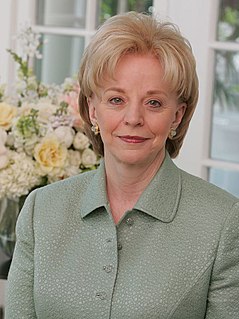A Quote by Albert Einstein
During the last century, and part of the one before, it was widely held that there was an unreconcilable conflict between knowledge and belief. The opinion prevailed amoung advanced minds that it was time that belief should be replaced increasingly by knowledge; belief that did not itself rest on knowledge was superstition, and as such had to be opposed. According to this conception, the sole function of education was to open the way to thinking and knowing, and the school, as the outstanding organ for the people's education, must serve that end exclusively.
Quote Topics
According
Advanced
Before
Belief
Between
Century
Conception
Conflict
Did
Education
End
For The People
Function
Had
Held
Increasingly
Itself
Knowing
Knowledge
Last
Minds
Must
Open
Opinion
Opposed
Organ
Outstanding
Part
People
Replaced
Rest
School
Serve
Should
Sole
Superstition
Thinking
Time
Way
Widely
Related Quotes
Well, part of it is a longstanding belief - it's been in our education establishment at least since the 1930s - that somehow children should be allowed to discover knowledge for themselves, that they should construct their own knowledge. This has surfaced most recently in connection with mathematics instruction, where the idea is that they need to discover how to add for themselves. Rather than being taught how to add, they should construct this knowledge on their own.
Until the content of a belief is made clear, the appeal to accept the belief on faith is beside the point, for one would not know what one has accepted. The request for the meaning of a religious belief is logically prior to the question of accepting that belief on faith or to the question of whether that belief constitutes knowledge.
People are invariably surprised to hear me say I am both an atheist and an agnostic, as if this somehow weakens my certainty. I usually reply with a question like, “Well, are you a Republican or an American?” The two words serve different concepts and are not mutually exclusive. Agnosticism addresses knowledge; atheism addresses belief. The agnostic says, “I don't have a knowledge that God exists.” The atheist says, “I don't have a belief that God exists.” You can say both things at the same time. Some agnostics are atheistic and some are theistic.
Today a new faith is awakening — the Myth of the blood; the belief that to defend the blood is also to defend the divine nature of man in general. It is a belief, effulgent with the brightest knowledge, that Nordic blood represents that Mysterium which has overcome and replaced the older sacraments.
I start ... from a belief in individual freedom and that derives fundamentally from a belief in the limitations of our knowledge, from a belief ... that nobody can be sure that what he believes is right, is really right ... I'm an imperfect human being who cannot be certain of anything, so what position ... involved the least intolerance on my part? ... The most attractive position ... is putting individual freedom first.


































